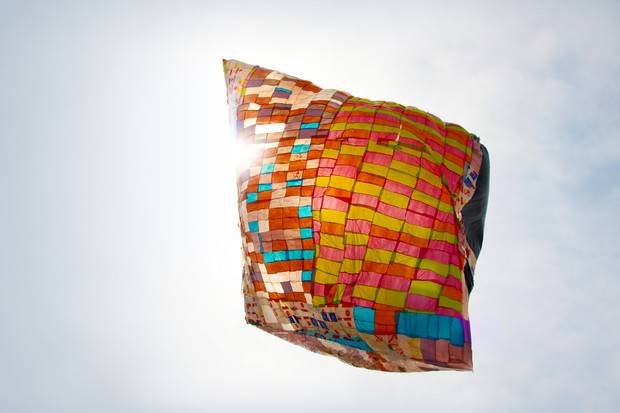A Neuroscientist Looks at Intuition
From one perspective, more than any magical ability, intuition is part of our evolutionary arsenal.
When we talk about “vibes” or unexplained feelings (be they positive or negative) with respect to persons or places, we’re in the realm of intuition. There are people with whom we establish ties immediately. And others who repel us for no apparent reason.
According to psychiatrist, Peter C. Whybrow, intuition is self-reflective knowledge which is regulated by the preconscious neural network. This doesn’t fully explain why we’re afraid to go through dark places at night, or why we smell milk that has been in the refrigerator before serving it, but it helps us to understand intuition as a skill that allows us to avoid danger and prevent problems.
The preconscious neural network becomes stronger with time. Learning to swim or to ride a bike is something we do automatically once we’ve learned. Likewise, we learn a series of patterns over our lifetimes, from social behavior to habits and beliefs.
The establishment of these neural patterns helps the brain to maintain the power available for other functions. If one action served us at some time in the past by preventing danger, our brain marks it as important and wants to apply that action in similar situations in the future when the pattern is again recognized.
Our intuition, though, isn’t foolproof. Although we may feel inclined to behave in certain ways in a situation, the impulses coming from the preconscious neural network – and which occur within microseconds – don’t take into account any new features that the situation might present. Thus, trauma or conditioned reflexes of fear in certain situations are irrational, and will often do more harm than good if reason doesn’t intervene.
Intuition, then, is a tool that we can recognize when we play sports regularly, when we ride a bicycle or when we read and write. We don’t have to learn the same code again and again because our brain’s network is already integrated.
The unconscious stores an unimaginable number of patterns and responses learned from prior experiences. These are presented to us in the form of feelings of attraction or repulsion. On the one hand, we rely on these impulses to make ourselves more aware of our experiences, but to blindly rely on impulses can prevent us from noticing differences or new features of any given circumstances.
Learning to trust intuition, then, is an art that must be exercised with care. Recognizing feelings of attraction or repulsion in ourselves, we will rely on them, but we still need to pay attention as much as possible to what’s different in any given environment.
Related Articles
When ancient rituals became religion
The emergence of religions irreversibly changed the history of humanity. It’s therefore essential to ask when and how did ancient peoples’ rituals become organized systems of thought, each with their
Seven ancient maps of the Americas
A map is not the territory. —Alfred Korzybski Maps are never merely maps. They’re human projections, metaphors in which we find both the geographical and the imaginary. The cases of ghost islands
An artist crochets a perfect skeleton and internal organs
Shanell Papp is a skilled textile and crochet artist. She spent four long months crocheting a life-size skeleton in wool. She then filled it in with the organs of the human body in an act as patient
A musical tribute to maps
A sequence of sounds, rhythms, melodies and silences: music is a most primitive art, the most essential, and the most powerful of all languages. Its capacity is not limited to the (hardly trivial)
The enchantment of 17th-century optics
The sense of sight is perhaps one the imagination’s most prolific masters. That is why humankind has been fascinated and bewitched by optics and their possibilities for centuries. Like the heart, the
Would you found your own micro-nation? These eccentric examples show how easy it can be
Founding a country is, in some ways, a simple task. It is enough to manifest its existence and the motives for creating a new political entity. At least that is what has been demonstrated by the
Wondrous crossings: the galaxy caves of New Zealand
Often, the most extraordinary phenomena are “jealous of themselves” ––and they happen where the human eye cannot enjoy them. However, they can be discovered, and when we do find them we experience a
Think you have strange reading habits? Wait until you've seen how Mcluhan reads
We often forget or neglect to think about the infinite circumstances that are condensed in the acts that we consider habitual. Using a fork to eat, for example, or walking down the street and being
The sky is calling us, a love letter to the cosmos (video)
We once dreamt of open sails and Open seas We once dreamt of new frontiers and New lands Are we still a brave people? We must not forget that the very stars we see nowadays are the same stars and
The sister you always wanted (but made into a crystal chandelier)
Lucas Maassen always wanted to have a sister. And after 36 years he finally procured one, except, as strange as it may sound, in the shape of a chandelier. Maassen, a Dutch designer, asked the










